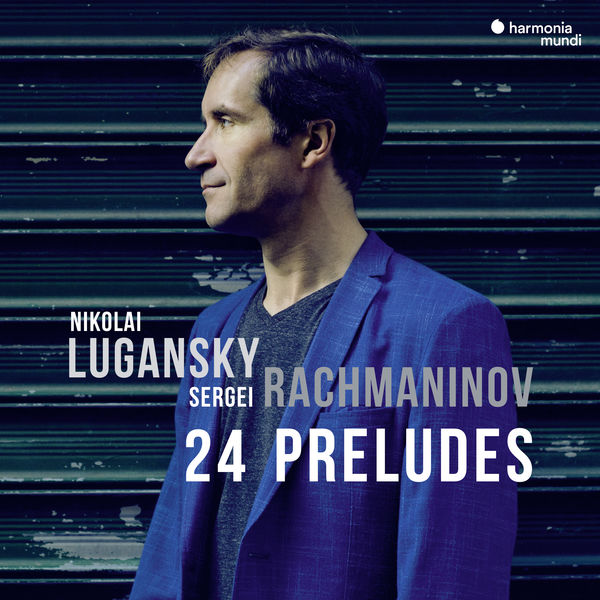
HR 96.0kHz/24Bit 
专辑名称: Rachmaninov : 24 Preludes
创作艺人: [Nikolai Lugansky]
音乐流派: Classical|古典
专辑规格: 1碟24首
出品公司: harmonia mundi
发行时间: 2018/2/16
官方标价: £13.79 (会员免费下载)
域名语言: [en] (AI检测)
曲目介绍:
No. 2. Prelude in C-Sharp Minor
No. 1. Largo in F-Sharp Minor
No. 2. Maestoso in B-Flat Major
No. 3. Tempo di minuetto in D Minor
No. 4. Andante cantabile in D Major
No. 5. Alla marcia in G Minor
No. 6. Andante in E-Flat Major
No. 7. Allegro in C Minor
No. 8. Allegro vivace in A-Flat Major
No. 9. Presto in E-Flat Minor
No. 10. Largo in G-Flat Major
No. 1. Allegro vivace in C Major
No. 2. Allegretto in B-Flat Minor
No. 3. Allegro vivace in E Major
No. 4. Allegro con brio in E Minor
No. 5. Moderato in G Major
No. 6. Allegro appassionato in F Minor
No. 7. Moderato in F Major
No. 8. Vivo in A Minor
No. 9. Allegro in A Major
No. 10. Lento in B Minor
No. 11. Allegretto in B Major
No. 12. Allegro in G-Sharp Minor
No. 13. Grave in D-Flat Major
详细介绍:
Unfortunately no, dear reader, there is no such thing as a cycle of “24 Preludes” by Rachmaninoff; however there are indeed 24 Preludes: a collection of ten Op. 23 from 1903, 13 other Op. 32 from 1910 and one isolated Prelude from the Morceaux de fantaisie Op. 3 (Fantasy Pieces) from 1893. In total: 24 Preludes, in which as a simple count shows Rachmaninoff − much like Chopin and of course Bach − illustrated all major and minor tones. Deliberately random, or the involuntary drive to create a reasonably coherent cycle? Contrary to his two illustrious predecessors, Rachmaninoff didn’t order his Preludes according to a specific tonal plan: the musician’s fantasy develops bit by bit.
Nikolai Lugansky – described by the famous magazine Gramophone as “the most innovative and transcendent interpreter of all” (so much for the others…), truly an extraordinarily deep and polyvalent pianist – decided to present the Preludes in the order prescribed by partitions, rather than reorganising them according to some hypothetical tonal logic, without knowing if Rachmaninoff would even have recommended or even considered it, particularly as the constant alternation of moods, independently of any tonal consideration, gives the piece a sense of perfect coherence. Finally it’s worth mentioning that Lugansky offers a very “original” interpretation of this divine music, which may feel like a re-discovery to some listeners. © SM/Qobuz

